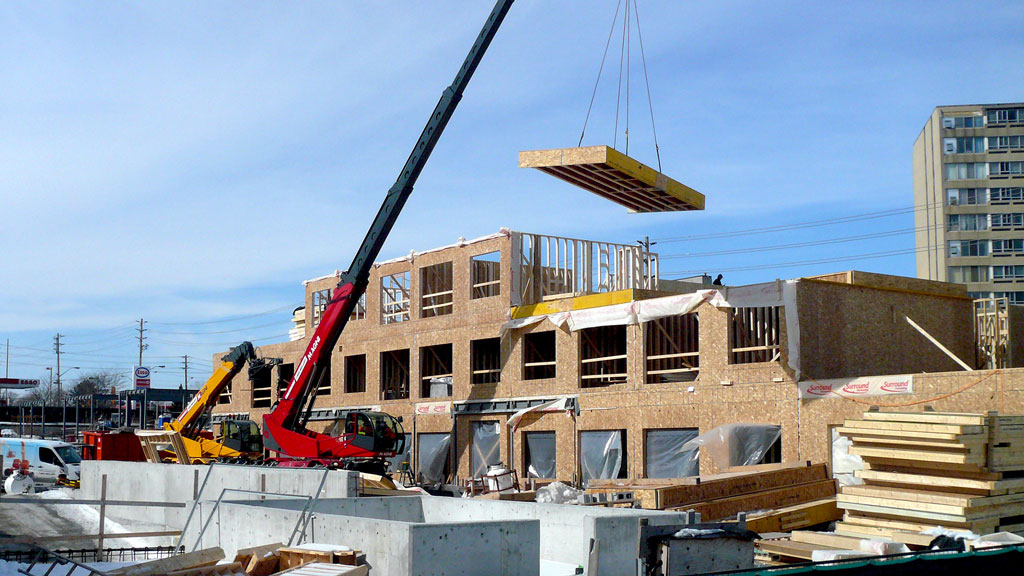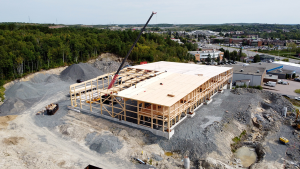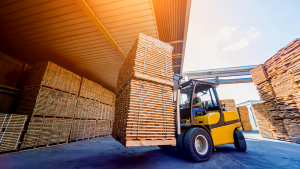As the mass timber building movement gains momentum, designers and builders need assurance that the wood products on the market are of high standards on a number of fronts.
The Sustainable Forest Initiative (SFI), the largest single forest certification standard in the world, is one of three certification agencies to provide that assurance.
Annie Perkins, a senior director for the green building and supply chain of SFI, said part of the organization’s job is to give architects and others in the building/design community confidence that the wood certified by SFI has gone through “a proper chain of custody and comes from well-managed forests.”
“That helps us and anyone using our products to contribute to addressing climate change, maintain and conserve bio-diversity and help keep water sources in forests clean and safe,” she explained.
Perkins gave a webinar presentation recently on the importance of certification in mass timber construction.
The webinar was hosted by Wood WORKS!, a program of the Canadian Wood Council.
According to a recent report by the Intergovernmental Panel on Climate Change, “improved forest management is one of only a handful of response options that provide medium to large benefits when addressing climate change challenges,” she said.
“As we scale,” by using more wood in buildings, it is important that it is done sustainably, she added.
Perkins said the SFI has three certification standards in Canada and the U.S.
One is for forestry management which applies to landowners. A fibre source certification applies to mills and entities once removed from forests. It impacts millions of hectares of forests across Canada and the U.S.
In addition, she said more than 2,300 companies around the world use SFI’s chain of custody certification which provides assurance for others in the supply chain. It includes the end user “so that they can see the transparent chain of custody.
“It is by connecting this big network and leveraging SFI’s certified organizations within that network to collaborate on conservation or social issues that we make our biggest impact across the U.S. and Canada,” she said.
Noting that SFI certifications must go through rigorous annual third-party testing, she said the non-profit company currently has several projects on the go, some of which aim to calculate carbon values and forest health and explore methodologies for supply chain specific projects.
One of those projects is examining increased forest carbon mitigation through forest soils. The aim is to identify forest practices for soil carbon, she said.
Another project being conducted at Michigan State University is establishing a link between SFI standards and climate smart forestry.
“Some of their key findings suggest that certification promotes numerous key outcomes that support climate benefits.”
SFI is the only agency that requires investment in forest research by landowners seeking its certification, added Perkins, noting since 1995 there has been $1.8 billion invested in forest research. Seventy per cent of those investments last year were allocated to conservation.
Perkins told the webinar that a number of large consortiums are shying from “single certification preferences” in favour of an inclusive approach to forest certification that recognizes all levels of certification standards.
She said a survey earlier this year by SFI found that 54 per cent of U.S. consumers were aware of the SFI logo. Seventy-four per cent of millennials aware of the logo indicated it has a positive influence on their product choices.










Recent Comments